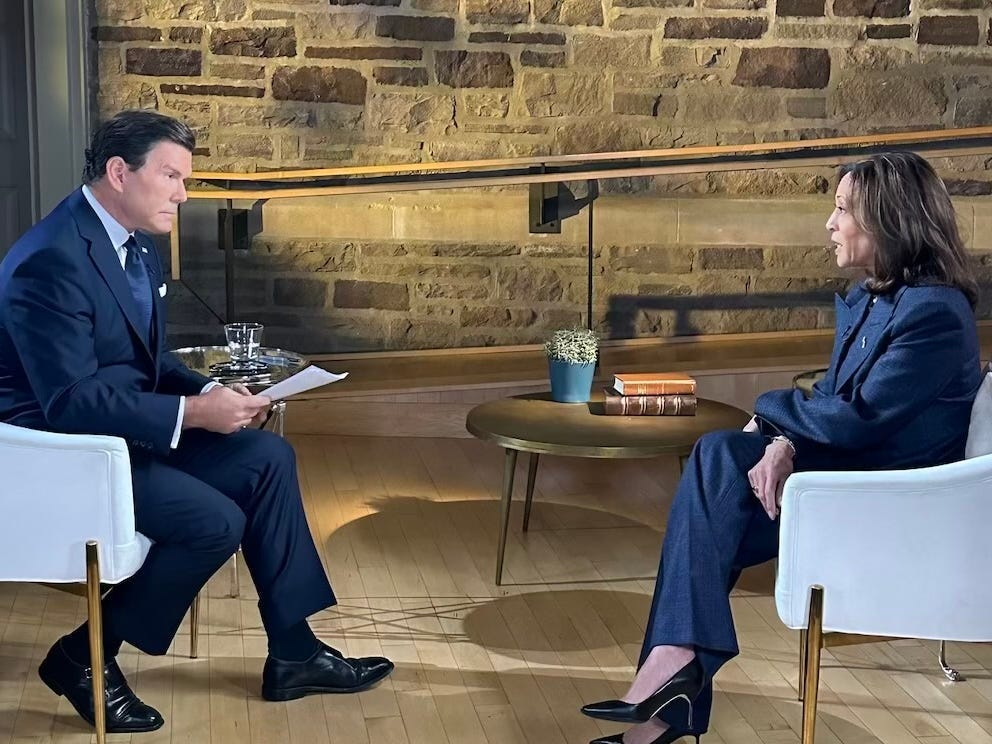Kamala Harris recently engaged in a live interview with Fox News host Bret Baier, which quickly escalated into a tense exchange concerning her political record and the state of the nation. During the interview, Baier challenged Harris on a survey indicating that a significant portion of the American populace—the Marquette Law School Poll noted 79%—believes the United States is headed in the wrong direction. With her long tenure as Vice President under President Joe Biden serving as the backdrop, Baier pressed Harris on why voters should support her candidacy when many associate her administration’s policies with the current administration’s perceived failures.
In response, Harris attempted to reframe the discussion, asserting that her presidency would represent a departure from Biden’s policies rather than a mere extension. She focused on how her vision would address the economic challenges facing the country, emphasizing plans aimed at revitalizing the economy by supporting small businesses, aiding young families, and increasing affordable housing availability. Harris asserted that her approach could lead to a positive transformation, claiming that Americans are eager for fresh leadership with a concrete agenda to propel the nation forward. She positioned herself as a candidate who would foster economic stability, arguing against former President Donald Trump’s economic strategies, which she contended would only exacerbate inflation and potentially lead to a recession.
The conversation shifted back to the stark divide in public opinion, as Baier pressed Harris for concrete distinctions between her potential presidency and Biden’s, despite her claims of a different vision. He sought clarity on what policies would change under her leadership and what elements might persist. Harris retorted that the most apparent difference was her identity as an individual distinctly separate from Biden. Furthermore, she attempted to draw attention away from her administration’s track record by framing Trump as a divisive force who had made significant efforts to fracture the nation’s unity.
Despite the negative sentiment captured by the Marquette poll, Harris highlighted that her candidacy remains competitive with Trump, with polling suggesting a near tie among likely voters. This competitive stance suggests that while many are disillusioned with the current trajectory of the country, the race remains closely contested, reflecting underlying political dynamics where voters are still weighing their options ahead of the election. Harris’s focus on a shared responsibility for the state of the nation—attributing obstacles to both parties—was one strategy employed to deflect personal accountability for the current dissatisfaction with the government.
When discussing border security, another critical issue, Baier pressed Harris for specifics regarding the estimated number of illegal immigrants released into the country during her time in office. Rather than providing a direct answer, Harris pivoted to discuss the legislative efforts made by both parties to seek a resolution on immigration reform. She claimed that bipartisan efforts had stalled due to Republican opposition, allegedly incited by Trump, which limited the potential for significant legislative progress on immigration issues.
Overall, the interview illustrated the heightened tensions of the political landscape as the presidential campaign intensifies. Harris’s insistence on promoting her unique platform while relying on critiques of Trump underscores a strategy to position herself as a candidate of change, as she works to detach her future from the Biden administration’s record. Direct confrontations during interviews like this one reveal the complex interplay of public perception, legislative achievement, and electoral strategy leading into a contentious election year. Harris seeks to galvanize support through a narrative of moving forward while confronting entrenched issues that reverberate through the body politic.

